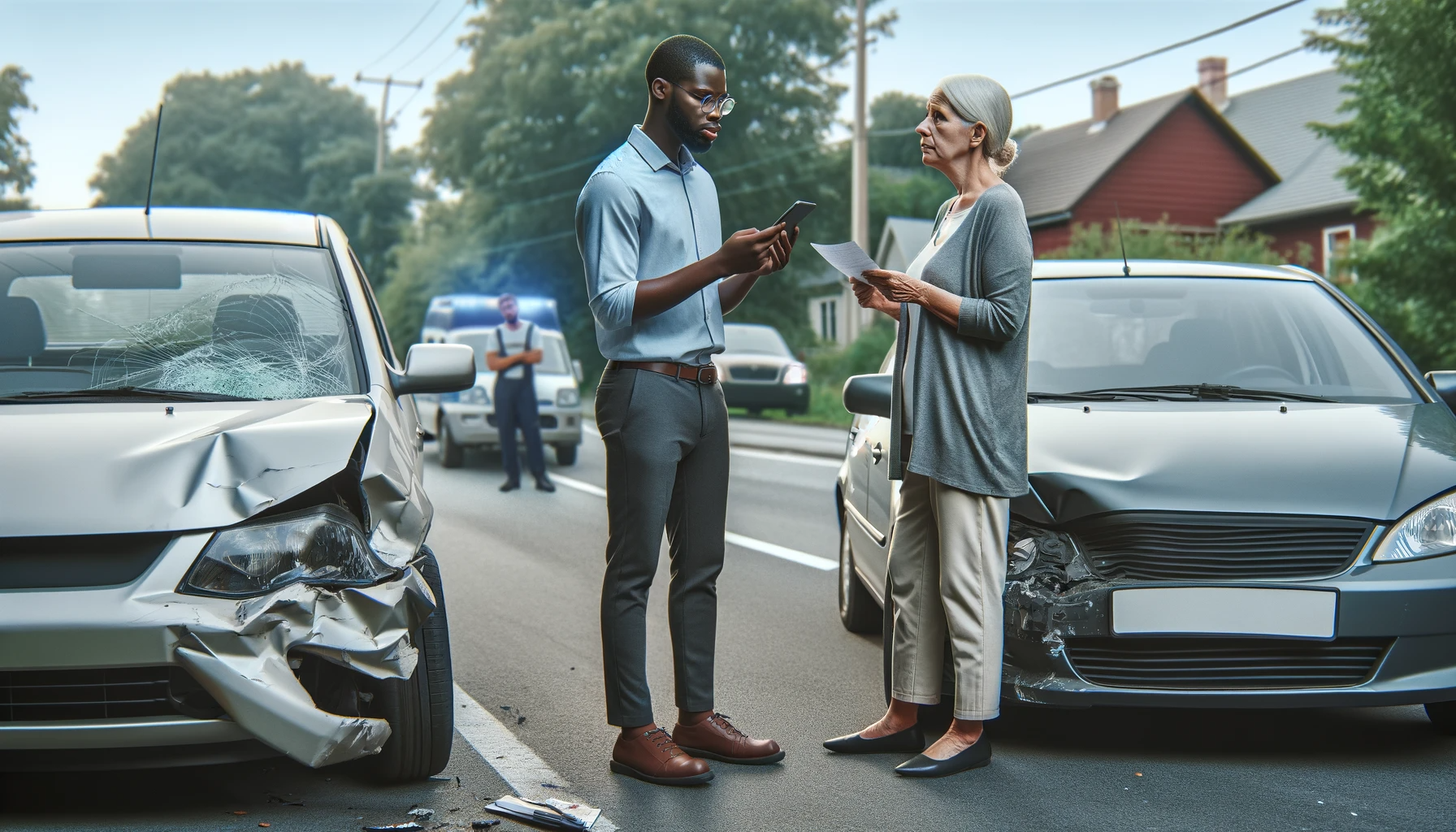Crash Chronicles: Legal Resources and Witness Testimonies in Case of Car Accidents
Introduction
Car accidents are a common yet distressing occurrence that can leave victims grappling with physical injuries, emotional trauma, and financial burdens. Navigating the aftermath of a car accident requires understanding legal resources and the crucial role of witness testimonies. This article aims to provide a comprehensive guide to help victims of car accidents secure their rights and ensure they receive the support they need.
Common Causes of Car Accidents
Distracted Driving
Distracted driving is one of the leading causes of car accidents. Activities such as texting, eating, or using in-car technologies divert attention from the road, increasing the risk of collisions. Drivers should focus solely on driving, avoiding any activities that take their hands off the wheel or eyes off the road. Even a momentary distraction can result in severe consequences.
Speeding
Speeding not only reduces the driver's reaction time but also increases the severity of accidents. When a vehicle is traveling at high speeds, it becomes more difficult to stop quickly and avoid hazards. Adhering to speed limits is essential for ensuring road safety. Driving within the speed limit allows for better control of the vehicle and more time to react to unexpected situations, thereby reducing the likelihood of accidents.
Drunk Driving
Driving under the influence of alcohol or drugs impairs judgment and coordination, leading to a significant number of accidents. Alcohol and drugs affect the central nervous system, reducing the ability to make quick decisions and control the vehicle properly. It is vital to avoid driving if you've consumed any intoxicants. Designating a sober driver or using public transportation can prevent potentially deadly accidents.
Immediate Steps Post-Accident
Ensuring Safety
The first priority after an accident is to ensure the safety of everyone involved. If possible, move vehicles out of traffic to prevent further collisions and check for injuries. Turn on hazard lights to alert other drivers. If anyone is injured, provide first aid if you are qualified, and wait for emergency services to arrive.
Contacting Authorities
It is crucial to contact the police to report the accident. An official report can be vital for insurance claims and legal proceedings. The police will document the scene, interview witnesses, and gather evidence that can be essential for determining fault and liability. Additionally, having an official report can protect you legally and provide a reliable record of the incident.

Legal Resources for Car Accident Victims
Importance of Legal Assistance
Legal assistance can be invaluable in navigating the complexities of car accident cases. A knowledgeable lawyer can help protect your rights, negotiate with insurance companies, and guide you through the legal process. They can assess the details of your case, provide strategic advice, and represent you in court if necessary. This support is crucial for ensuring that you receive fair compensation for your injuries, property damage, and any other losses incurred from the accident.
Finding the Right Lawyer
Specialized in handling
Car accident cases,
Personal injury lawyers can provide the expertise needed to secure compensation for your injuries and losses. They are well-versed in the nuances of personal injury law, including liability, negligence, and insurance claims. An experienced
Personal injury lawyer can build a strong case on your behalf, ensuring that all aspects of your claim are thoroughly addressed, from medical expenses to lost wages and pain and suffering.
Free Legal Aid Services
For those who cannot afford a lawyer, free legal aid services are available. These organizations offer legal advice and representation to ensure everyone has access to justice. Free legal aid services can assist with filing claims, understanding legal rights, and navigating the court system. They provide critical support to low-income individuals, ensuring that financial constraints do not prevent accident victims from seeking justice and receiving the compensation they deserve.
Navigating Insurance Claims
Filing an Insurance Claim
Necessary Documentation
Gathering all necessary documentation, such as the police report, medical records, and photographs of the accident scene, is crucial for a successful insurance claim. Detailed documentation provides evidence to support your claim and helps establish the extent of your injuries and damages. Ensure that you also keep records of any communications with medical professionals and repair shops, as these can further substantiate your claim.
Communication with the Insurance Company
Maintain clear and consistent communication with your insurance company. Provide all requested information promptly to avoid delays in processing your claim. It is important to be honest and accurate in your communications, as discrepancies can lead to complications or claim denials. Keeping a record of all interactions with the insurance company, including phone calls and emails, can be useful for reference and evidence if disputes arise.
Dealing with Claim Denials
If your insurance claim is denied, you have the right to appeal the decision. Consulting with a lawyer can increase your chances of overturning the denial and securing the compensation you deserve. A lawyer can help you understand the reasons for the denial, gather additional evidence if needed, and present a strong case during the appeals process. It is important to act quickly, as there are often deadlines for filing appeals.
Role of Witness Testimonies
Importance of Witnesses in Car Accidents
Witnesses can provide an unbiased account of the accident, which is invaluable in establishing the facts and supporting your case in legal proceedings and insurance claims. Their testimonies can offer a different perspective that might highlight details you missed or corroborate your version of events. An objective witness can help clarify the sequence of events, identify the at-fault party, and contribute significantly to the credibility of your claim.
How to Collect Witness Statements
In-Person Statements
Immediately after the accident, try to collect statements from any witnesses present. Their firsthand accounts can be crucial in building your case. Approach witnesses calmly and respectfully, asking them to describe what they saw. It's helpful to take notes or record their statements if they consent. Ensure you gather their contact information for follow-up if needed. These real-time accounts are often the most accurate and impactful.
Written Statements
If in-person statements are not possible, request written statements from witnesses. Ensure these statements are detailed and signed to add credibility. A written statement should include the witness's full name, contact information, and a detailed account of what they observed. It's important that the statement is as specific as possible, mentioning times, locations, and any other pertinent details. A signed statement provides a formal record that can be used effectively in both legal and insurance contexts.
Legal Procedures Following a Car Accident
Filing a Police Report
Filing a police report is a mandatory step after a car accident. This report serves as an official record of the incident and can be pivotal in legal and insurance claims. The police report typically includes the date, time, and location of the accident, the parties involved, witness statements, and any citations issued. It provides an unbiased account of the accident, which can be critical for determining fault and supporting your case.
Understanding the Court Process
Small Claims Court
For minor disputes and claims, small claims court provides a simpler and quicker resolution process without the need for a lawyer. Small claims court is designed to handle cases involving limited amounts of money, typically up to a specific monetary limit set by the state. The process is less formal than regular court proceedings, and individuals can represent themselves. This makes it a cost-effective option for resolving minor accidents and disputes quickly.
Civil Court
More complex cases involving significant damages or injuries may require filing a lawsuit in civil court. This process can be lengthy and typically involves legal representation. Civil court cases often involve substantial legal fees, detailed preparation, and formal procedures. In these cases, having an experienced
Personal injury lawyer is crucial to navigate the complexities of the legal system, present evidence, and advocate on your behalf to seek fair compensation.
Compensation and Settlements
Types of Compensation
Medical Expenses
Victims of
Car accidents can claim compensation for medical expenses, including hospital bills, rehabilitation costs, and any future medical needs related to the accident. This includes emergency room visits, surgeries, medications, physical therapy, and any required medical equipment. Additionally, if long-term or permanent care is necessary, these future medical expenses can also be included in the compensation claim.
Lost Wages
If the accident results in missed work or an inability to continue working, you can claim compensation for lost wages and diminished earning capacity. This covers the income you would have earned during the recovery period and compensates for any potential future earnings lost due to ongoing disability or reduced ability to work. Proper documentation, such as pay stubs and employer statements, is essential to support these claims.
Pain and Suffering
Beyond physical injuries, compensation can also cover pain and suffering, which accounts for the emotional and psychological impact of the accident. Pain and suffering compensation is intended to address the non-economic damages experienced due to the accident, including ongoing pain, emotional distress, loss of enjoyment of life, and other intangible impacts. This type of compensation can vary widely and is often calculated based on the severity and duration of your suffering.
Negotiating a Settlement
Negotiating a fair settlement requires understanding the full extent of your damages and being prepared to provide evidence to support your claims. A lawyer can assist in these negotiations to ensure you receive adequate compensation. They can help gather and present the necessary documentation, such as medical records, accident reports, and expert testimonies. A skilled lawyer can also navigate the negotiation process, countering lowball offers, and advocating for a settlement that fully covers your losses.
Impact of Car Accidents on Mental Health
Psychological Trauma
Car accidents can leave lasting psychological scars, including anxiety, depression, and post-traumatic stress disorder (PTSD). Acknowledging and addressing these issues is crucial for recovery. Psychological trauma can manifest in various ways, such as fear of driving, nightmares, flashbacks, and mood swings. These symptoms can significantly impact your quality of life and ability to function normally.
Seeking Mental Health Support
Seeking professional mental health support can aid in managing the emotional aftermath of a car accident. Therapists and support groups offer valuable resources for healing. Therapy can provide a safe space to process the trauma, develop coping strategies, and work through emotional pain. Support groups offer the opportunity to connect with others who have experienced similar situations, providing mutual support and understanding. Addressing mental health is as important as treating physical injuries, ensuring a comprehensive recovery process.

Safe Driving Tips
Adhering to traffic laws, avoiding distractions, and staying alert can significantly reduce the risk of accidents. Regularly reviewing safe driving practices is beneficial for all drivers. Here are some key safe driving tips:
- Obey Speed Limits: Always drive within the posted speed limits. Speeding reduces your reaction time and increases the severity of accidents.
- Avoid Distractions: Refrain from using your phone, eating, or engaging in other distracting activities while driving. Keep your focus on the road at all times.
- Stay Alert: Fatigue and drowsiness can impair your driving abilities. Make sure you are well-rested before driving, and take breaks during long trips.
- Use Signals: Always use turn signals when changing lanes or turning. This helps communicate your intentions to other drivers and can prevent collisions.
- Maintain a Safe Distance: Keep a safe following distance from the vehicle ahead. This gives you ample time to react if the vehicle suddenly stops or slows down.
- Adapt to Road Conditions: Adjust your driving based on weather, road, and traffic conditions. For example, drive more cautiously in rain, fog, or heavy traffic.
- Avoid Aggressive Driving: Stay calm and patient, even in stressful traffic situations. Aggressive behaviors like tailgating, speeding, and weaving through traffic increase the risk of accidents.
Importance of Vehicle Maintenance
Regular vehicle maintenance ensures that your car is in optimal condition, reducing the likelihood of mechanical failures that could lead to accidents. Here are some essential maintenance tasks:
- Check Tires: Regularly inspect your tires for proper inflation, tread wear, and alignment. Properly maintained tires improve traction and handling, reducing the risk of skids and blowouts.
- Inspect Brakes: Ensure your brakes are in good working order. Squeaking or grinding noises, along with longer stopping distances, indicate that your brakes need attention.
- Monitor Fluid Levels: Regularly check and top up essential fluids, including engine oil, coolant, brake fluid, and transmission fluid. Proper fluid levels ensure your vehicle runs smoothly and prevents overheating and other mechanical issues.
- Maintain Lights: Ensure all lights, including headlights, taillights, brake lights, and turn signals, are functioning correctly. This is crucial for visibility and communication with other drivers.
- Test Battery: Regularly test your car battery to ensure it holds a charge. Replace it if necessary to avoid unexpected breakdowns.
- Examine Belts and Hoses: Inspect belts and hoses for any signs of wear, cracks, or leaks. Replacing them before they fail can prevent engine damage and other serious issues.
- Schedule Regular Check-Ups: Follow your vehicle manufacturer’s recommended maintenance schedule. Regular professional inspections can identify and address potential issues before they become major problems.
Conclusion
Car accidents can have far-reaching consequences, impacting victims physically, emotionally, and financially. Understanding the available legal resources and the importance of witness testimonies can make navigating the aftermath more manageable. By seeking proper legal assistance, collecting thorough evidence, and addressing both physical and emotional needs, victims can work towards recovery and securing the compensation they deserve.
Look for an attorney who has the right legal resources for your legal needs.
Contact us here on the
Warmuth Law website or through our hotline 888-517-9888.
Frequently Asked Questions (FAQ's)
1. What should I do immediately after a car accident?
Immediately ensure everyone's safety, move vehicles out of traffic if possible, and contact the police to report the accident.
2. How can I find a reliable Car accident lawyer?
Look for lawyers who specialize in
Personal injury cases, and consider seeking recommendations from friends, family, or online reviews.
3. What if my insurance claim is denied?
You have the right to appeal a denied insurance claim. Consult with a lawyer to help navigate the appeals process and improve your chances of success.
4. How important are witness testimonies in Car accident cases?
Witness testimonies provide an unbiased account of the accident, which can be crucial in supporting your case in both legal proceedings and insurance claims.
5. Can I get compensation for mental health issues after a Car accident?
Yes, compensation for mental health issues such as anxiety, depression, and PTSD can be included in claims for pain and suffering.













